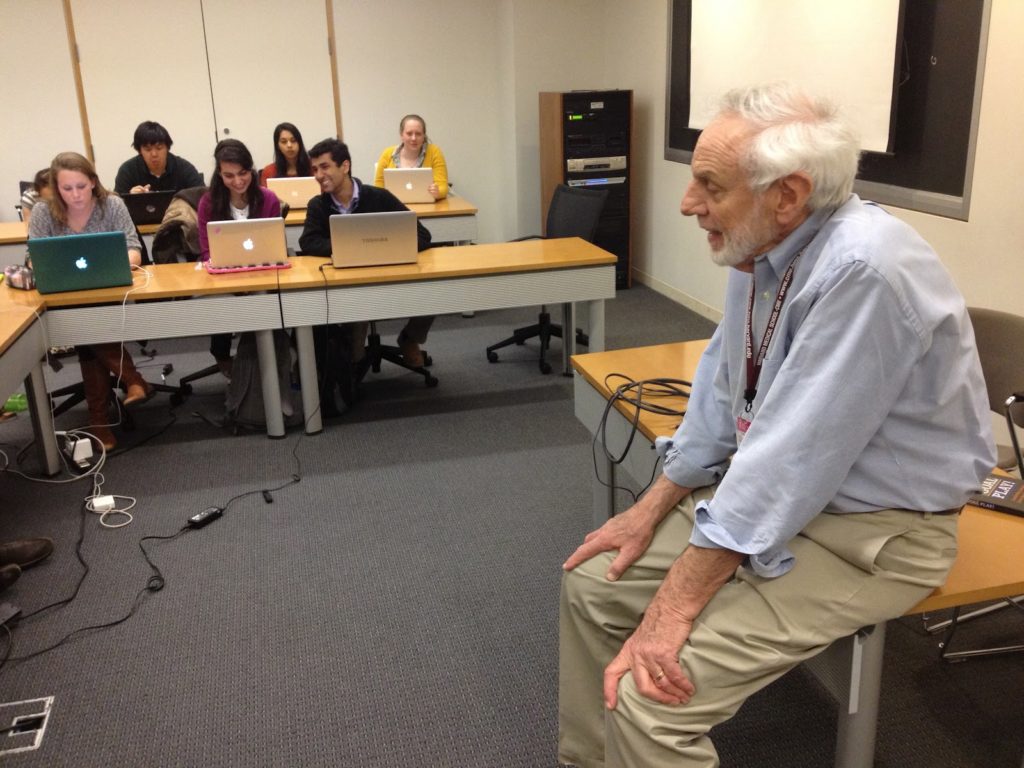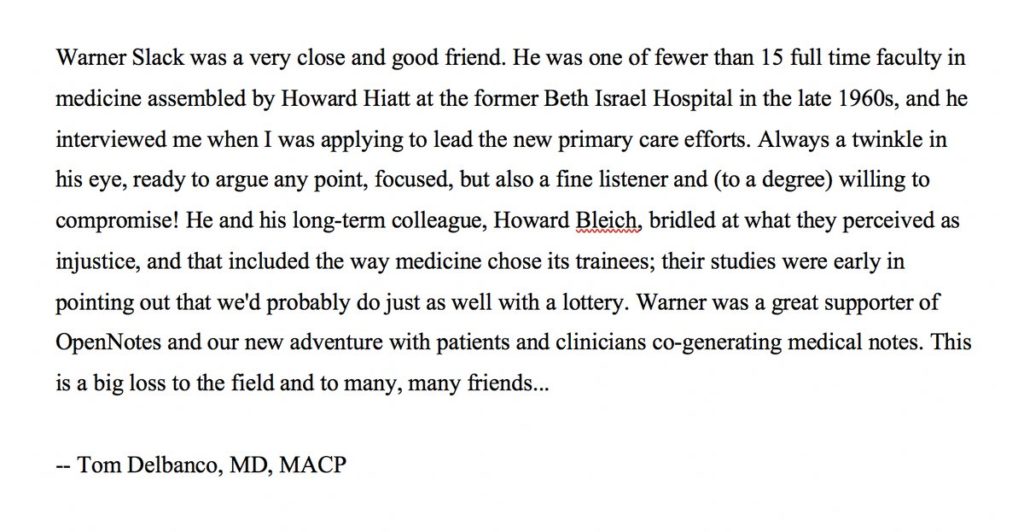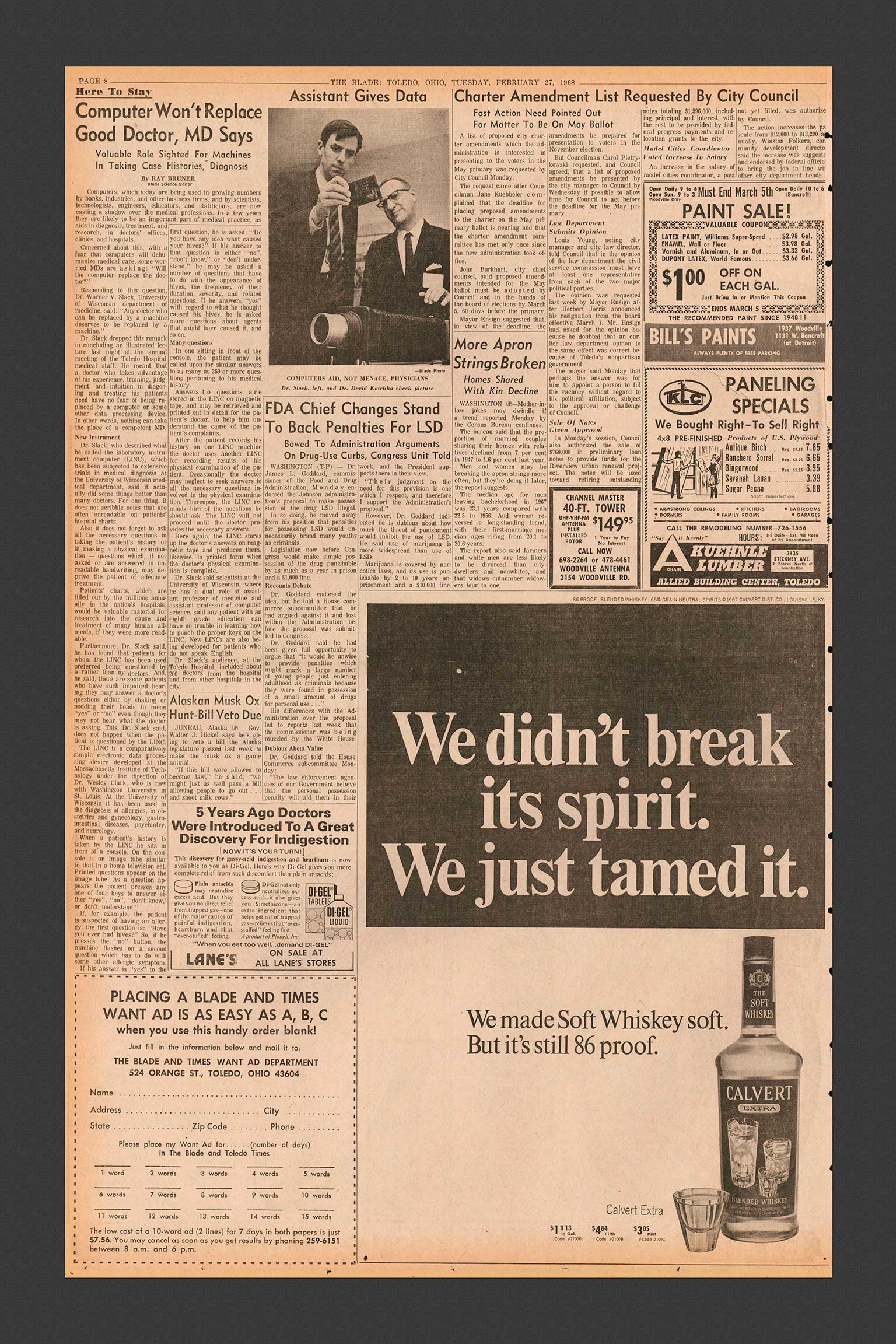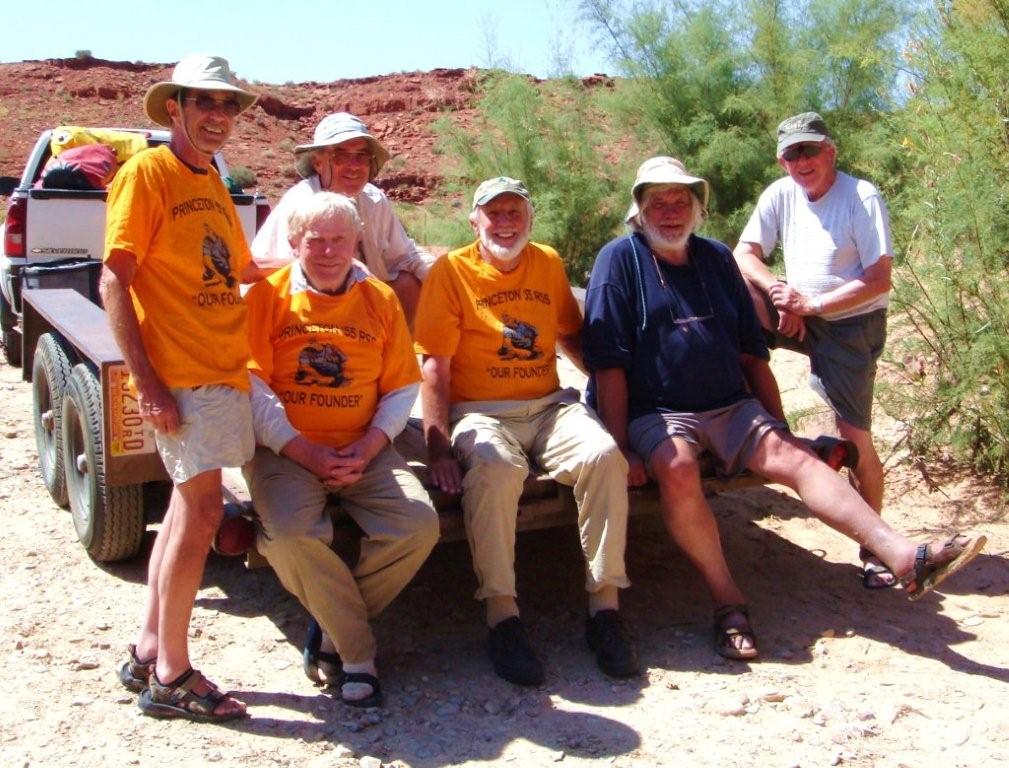
A great, great man has passed away – a man I quote in half my speeches. I was privileged to know him enough to feel grateful about it, and especially grateful to have been able to visit him a few times in his final weeks. It’s Warner Slack, the one who famously said in the 1970s that patients are the most underutilized resource in healthcare.
There’s so much to say about him, but I’ll mostly let others speak, partly because it’s hard to know what to add. Here are a few things.
- WBUR’s CommonHealth radio, yesterday: Dr. Warner Slack, Electronic Medical Records Pioneer And Champion Of ‘Patient Power,’ Dies.
- Favorite Warner quote in this piece: “I hoped that the computer would help the doctor in the care of the patient. And in the back of my mind was the idea that the computer might actually help patients to help themselves with their medical problems.”
- I had a brief quote in the program: “He saw the future a half century ahead. He was the patron saint of the movement to get patients involved in health care by involving us in our medical records. And what he saw and talked about even as far back as the 1960s is finally becoming reality today.”
- I hadn’t known that at Princeton he knew Ralph Nader, also class of ’55! Warner’s wife Carolyn says they got to know each other when in 1989 Ralph started Project 55 because ”material well-being for ourselves has not led to the healthy society we seek.”
- On this web page, scores of heartfelt and heartwarming messages have come in from colleagues recalling his generosity and wisdom.
- Warner helped kindle the e-patient movement, back in the 1990s, by introducing my famous Dr. Danny Sands to “Doc Tom” Ferguson, who coined the term e-patient and spotted people like Danny. (Danny wrote about it in his 2009 post Why Participatory Medicine?)
- In a comment on that post. Gilles Frydman (who founded the ACOR community that helped save my life) wrote that Warner was one of ACOR’s first board members. (I hadn’t known that – so in a sense, what Warner encouraged helped save my life! Am I glad he saw the value in patient communities??)
-

Tom Delbanco’s message – click to enlarge OpenNotes co-founder Dr. Tom Delbanco, one of the greatest people I’ve known, submitted the quote at right.
- The Twitter hashtag #WarnerSlack has links to many other posts.
- He was featured in a 2017 Boston Globe piece Patient power through records
- That article led me to find an amazing video of Warner in 1967, on N.E.T., which later became PBS. I wrote about it on the e-patient blog, with many more observations.
 One reason Warner stands out in the starscape of health technology visionaries is that very early on he saw not just the strengths but the limits of what computers would be able to do. Click to enlarge the Toledo Blade newspaper page from February 1968, at left, in which he said computers can help with the information but will never replace a good doctor – in fact, he said, “Any doctor who can be replaced with a machine should be replaced with a machine.”
One reason Warner stands out in the starscape of health technology visionaries is that very early on he saw not just the strengths but the limits of what computers would be able to do. Click to enlarge the Toledo Blade newspaper page from February 1968, at left, in which he said computers can help with the information but will never replace a good doctor – in fact, he said, “Any doctor who can be replaced with a machine should be replaced with a machine.”
Today some talk about computers and “artificial intelligence” in healthcare, and I use plenty of health related apps, but as technologically fancy as I like to be, I have no plans ever to stop using good doctors and nurses. Because information is one thing, and care is another thing entirely.
Go in peace, Warner. You used your gifts well.



Thanks, Dave. I wish I knew Warner Slack. I think he’d be my hero. Enjoyed reading about him. RIP wise man.
Thanks for this. Loved the quote “the idea that the computer might actually help patients to help themselves with their medical problems.”. Very inspiring man.
Hi Dave – what a thoughtful and impressive salute to an important person who did important things. Thanks for writing this and helping those of us who didn’t know Dr. Slack personally really get a feel for his mind and spirit.
Regards,
C.
Hi Carolyn – sorry for the delay in releasing your comment – I saw it and thought I approved it immediately! Apps …
Yes, his mind and spirit. Great man, great human.
“information is one thing, and care is another thing entirely.” Very well said.